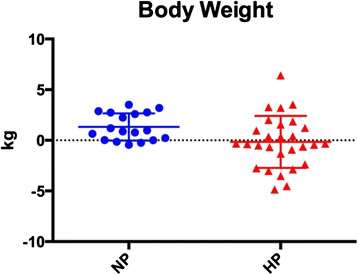dirtys1x
Senior Member
- Joined
- Aug 17, 2021
- Messages
- 548
- Reaction score
- 679
- Points
- 63
I don’t see anything about protein being converted into fat here.
Here is my summary of the data:
The normal protein and high protein group had similar weight gains. Although, in the high protein group they increased their lean body mass by more, in trade off for less fat. The low protein group actually gained the least amount of weight, however they had decreased by almost a kg in their lean body mass.
A final note they made about the study:
“The key finding of this study is that calories are more important than protein while consuming excess amounts of energy with respect to increases in body fat. This study examined the hypothesis proposed by Stock10 that overeating a low or high protein diet would produce less weight gain than overeating a normal protein diet”
Here is my summary of the data:
The normal protein and high protein group had similar weight gains. Although, in the high protein group they increased their lean body mass by more, in trade off for less fat. The low protein group actually gained the least amount of weight, however they had decreased by almost a kg in their lean body mass.
A final note they made about the study:
“The key finding of this study is that calories are more important than protein while consuming excess amounts of energy with respect to increases in body fat. This study examined the hypothesis proposed by Stock10 that overeating a low or high protein diet would produce less weight gain than overeating a normal protein diet”









